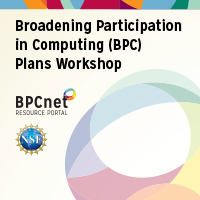
Upcoming BPC Community Forum: Exploring BPCnet’s New Features and Resources
Join us on Friday, January 10, 2025, at noon ET for the next BPCnet.org BPC Community Forum, hosted by the CRA’s Center for Evaluating the Research Pipeline (CERP). This session will focus on the recent redesign of BPCnet.org and highlight its updated features. It will also provide an opportunity for the participants to provide feedback on current and future content on BPCnet.org.
Participants will learn how to navigate BPCnet.org and get an overview of the wide range of resources on the website, including tools designed to support the creation and refinement of BPC plans (e.g., guides, templates), research and data related resources, and searchable databases. The forum will also provide an opportunity for attendees to share their experiences with the platform and offer feedback on its functionality.
Registration is required to attend this Zoom event. After registering with your name and email address, you will receive an email confirmation with the Zoom link.
The live transcript will be turned on for this BPC Community Forum. If you have any accessibility needs, please reach out to bpcinfo@cra.org.
This post is brought to you by the CRA’s Center for Evaluating the Research Pipeline (CERP). CERP provides social science research and comparative evaluation for the computing community. Subscribe to the CERP newsletter bulletin by clicking here. Volunteer for Data Buddies by signing up here.






